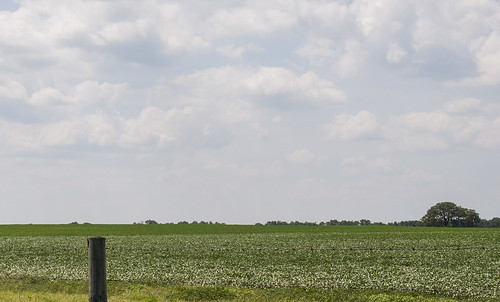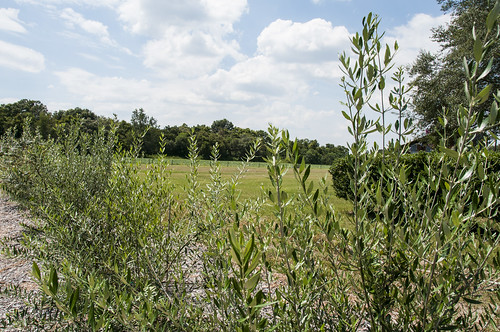
In the past, full-time farmers were the norm and children of farmers followed in their parent’s footsteps. That’s not the case today. Now, data from the Census of Agriculture show more than half of Florida’s principal farm operators report primary occupations other than farming.
Richard McGinley is a good example of today’s Florida farmer. He spent his early years living the city life until his dad moved the family to Ocala, located in central Florida, to begin farming. But McGinley had other interests that took him far from farming. He established a career in the nuclear industry and even started his own consulting business.
Then his dad became ill and McGinley returned to Ocala to help out on the family’s 950 acre farm. When his dad passed away, McGinley sold his consulting company and took over full-time operations at McGinley Farm.
McGinley is ever the scientist and always researches new and improved ways to farm. He works with local, state and federal agencies to explore ways to modernize his farm while also benefitting the environment. Urban sprawl also has to be considered in his plans since the farm is now surrounded by development.
McGinley’s first step was to call the USDA Natural Resources Conservation Service, (NRCS) for advice. Jill Dobbs, the NRCS district conservationist, worked with him to evaluate and determine what he was doing well and what needed attention on his farm. They also explored financial assistance opportunities through the agency.

“Working with NRCS and the programs available has helped me obtain a lot of things I wasn’t able to before,” McGinley said. “Their staff made me more aware of conservation methods and how I can help out other farmers in the area.”
Through NRCS’ Environmental Quality Incentives Program and the Conservation Stewardship Program, he received financial assistance to help improve his land. He added a global positioning system, (GPS) to his tractor. This allows for efficient precision farming and energy, water, nutrient and pesticide costs savings. Using less fertilizer and pesticide lessens possible runoff into nearby waterways.
He installed an efficient precision pivot irrigation system, which requires less water. He also added a solar powered well to his irrigation system. Cross fencing, another conservation practice, helps with livestock rotation in his pastures for more precise grazing.
McGinley has also branched out into growing olive trees. With citrus diseases, such as citrus greening decimating Florida’s industry, the University of Florida and local growers are evaluating suitable crop alternatives. After consulting with his local extension agent, he planted a small experimental plot of seven varieties of olive trees, to determine which will grow best in his area.
McGinley also considers wildlife when planning. He has left a section of his land in trees and native vegetation, and improved these areas by planting special native grasses and plants. He often sees deer, turkeys, hawks, gopher tortoises and occasionally a bald eagle. Many of the animals he sees are listed as threatened or endangered species by the US Fish and Wildlife Service.
Although starting out in a different profession, McGinley, like many others in farming today, has made the transition to farmer in his own way. Though his life went in a totally different direction than he originally planned, McGinley said farming has been a rewarding and eye opening experience.



